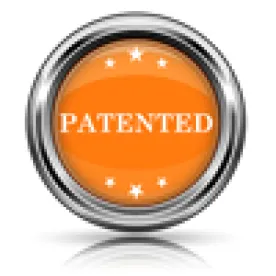In its Final Written Decision, the Board concluded that the Petition was not successful in showing that claims 1-16 of the ‘688 patent are unpatentable by a preponderance of the evidence. Petitioner had asserted that the following grounds were applicable to claims 1-16 of the ‘688 patent: (1) anticipation of claims 1-16 under 35 U.S.C. § 102(b) in view of Kolar; (2) obviousness of claims 1-16 under 35 U.S.C. § 103(a) in view of Kolar; and (3) anticipation of claims 1-16 under 35 U.S.C. § 102(b) in view of Wulf. But the Board was not convinced.
The ‘688 patent relates to “a household blender having a crushed ice functionality.” The Board construed various claim terms, including “cycle,” “phase,” “continuously reducing,” “to the operating speed,” and “to effect a pulsing.” Regarding the last of these, Petitioner had initially taken the position that “a pulsing that includes only one pulse is still a reasonable interpretation which the Board should adopt.” But then, during questioning by the Board during oral argument, Petitioner acquiesced that “pulsing” requires multiple pulses. Based on this, the Board’s ultimate construction was that “to effect a pulsing” means “to effect a series of repeated pulses.”
As for first asserted ground (1), the Board found that “Kolar does not disclose ‘automatically controlling a rotational speed of the cutter assembly to effect a pulsing,’ wherein each pulse comprises the recited ‘constant speed phase,’ ‘deceleration phase,’ and ‘acceleration phase.’” Other claim limitations were found to be missing from Kolar as well. In support of these conclusions, the Board found that Patent Owner had supported its positions with unrebutted testimony of its expert Mr. Faerber.
Regarding second asserted ground (2), Petitioner had cited In re Harza, 274 F.2d 669, 671 (CCPA 1960) in support of its argument that “it would have been obvious within the skill in the art to duplicate what is disclosed in Figure 6 of Kolar, such as the period from 0 to t4, to make the constant speed phase, acceleration and deceleration repetitive.” Nonetheless, the Board found that this rule from In re Harza was not applicable in the instant case because the duplication proposed by Petitioner “would have rendered the claimed subject matter unsuitable for its intended purpose.” Ex parte Efremova (BPAI Mar. 28, 2011).
As for third asserted ground (3), the Board found that Wulf did not disclose the claimed step of “’automatically controlling a rotational speed of the cutter assembly’ in order “to effect the recited pulsing.” Moreover, the Board found that an “inferential argument” proposed by Petitioner, while not on its face unreasonable, could not succeed because it was not supported by evidence. As characterized by the Board, this unsupported argument was not able to rebut the testimony of Mr. Faerber (Patent Owner’s expert) on this point.
Homeland Housewares, LLC v. Whirlpool Corporation, IPR2014-00877
Paper 18: Final Written Decision
Dated: October 21, 2015
Patent: 7,581,688 B2
Before: Phillip J. Kauffman, William V. Saindon, and Patrick M. Boucher
Written by: Boucher



 />i
/>i

